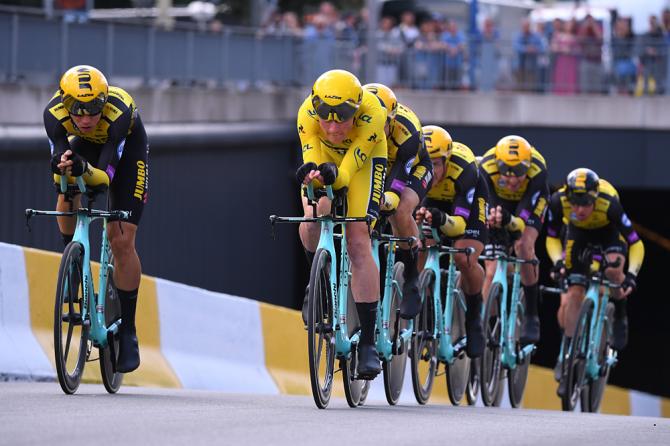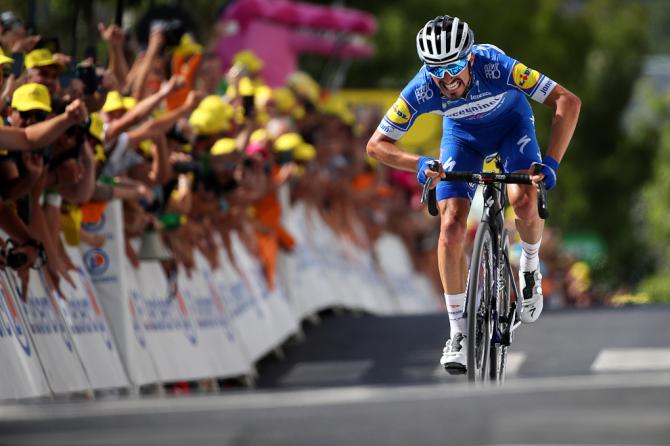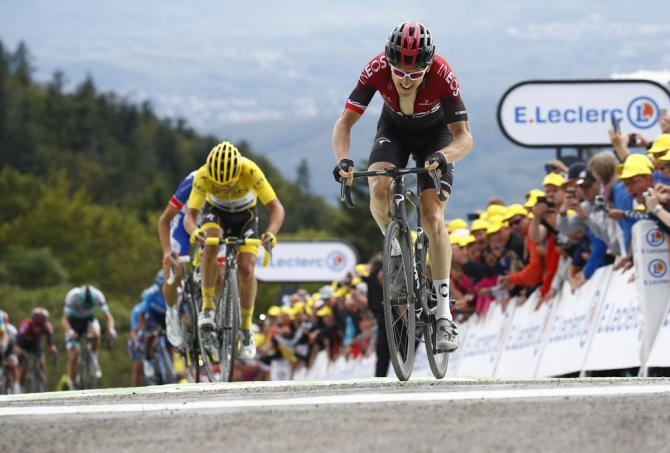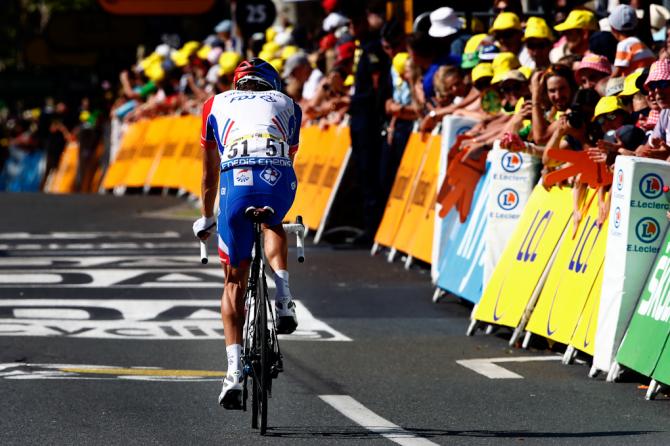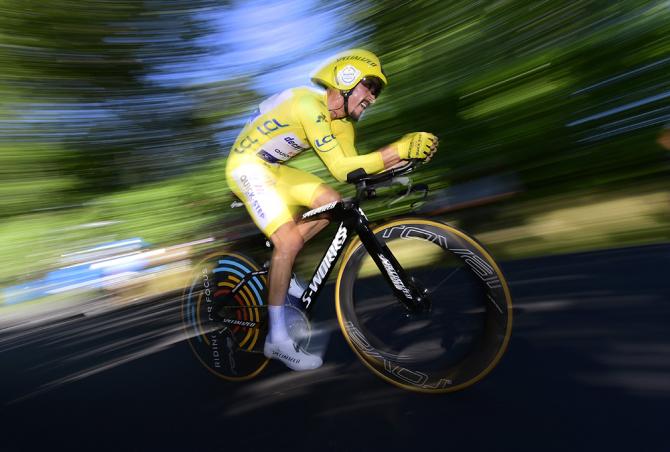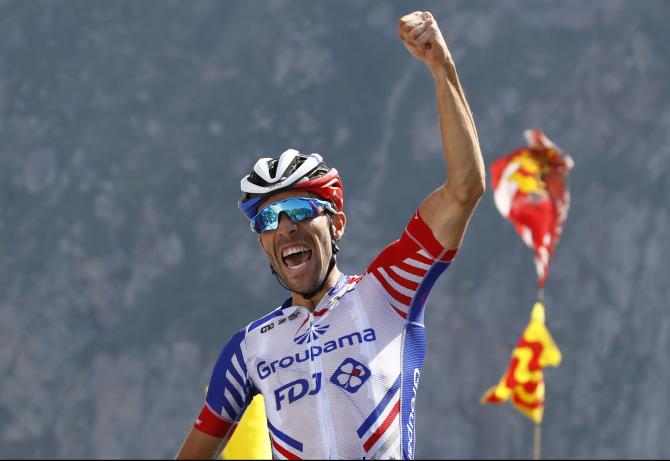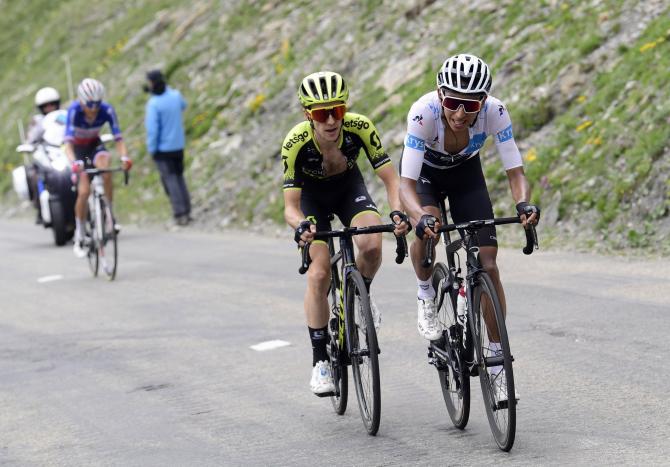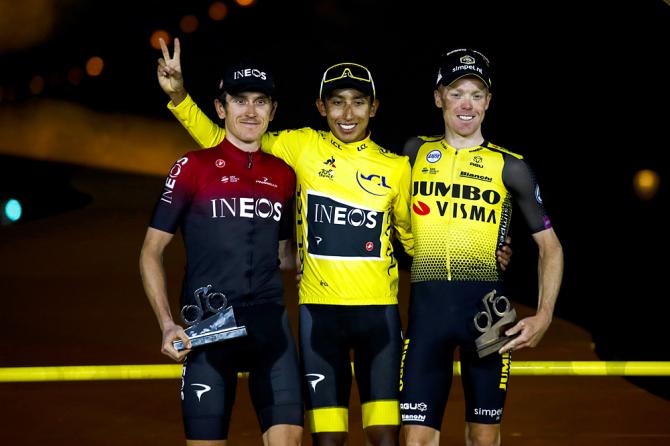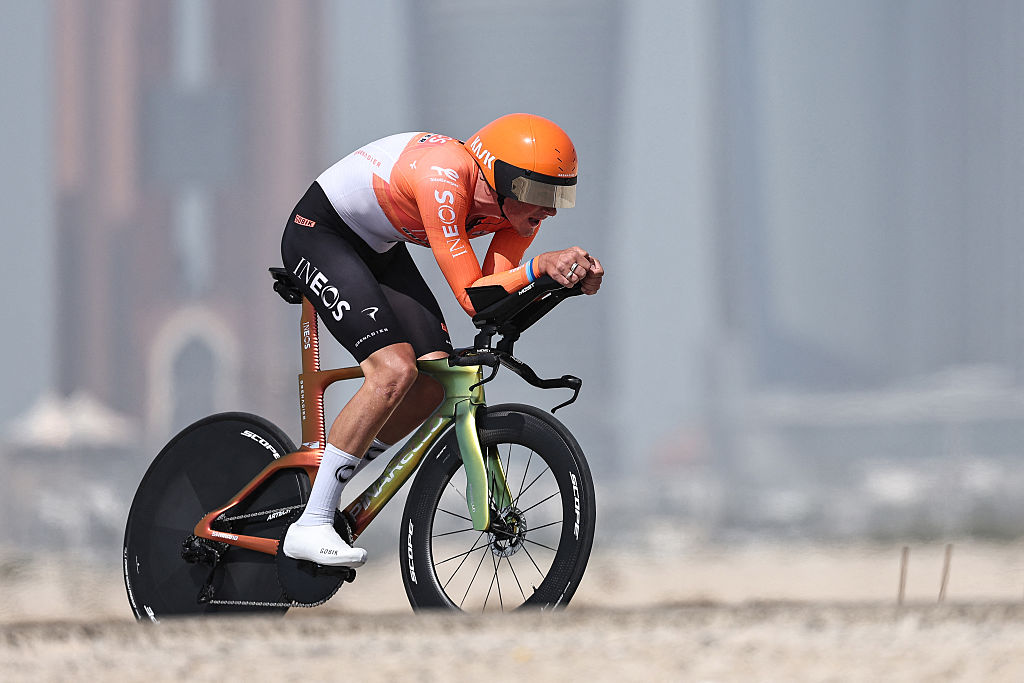The 8 stages that shook up the 2019 Tour de France
Where did this year's race all go right?
The latest race content, interviews, features, reviews and expert buying guides, direct to your inbox!
You are now subscribed
Your newsletter sign-up was successful
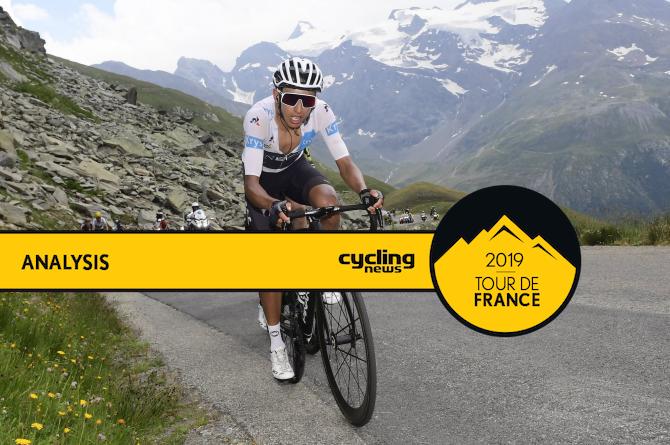
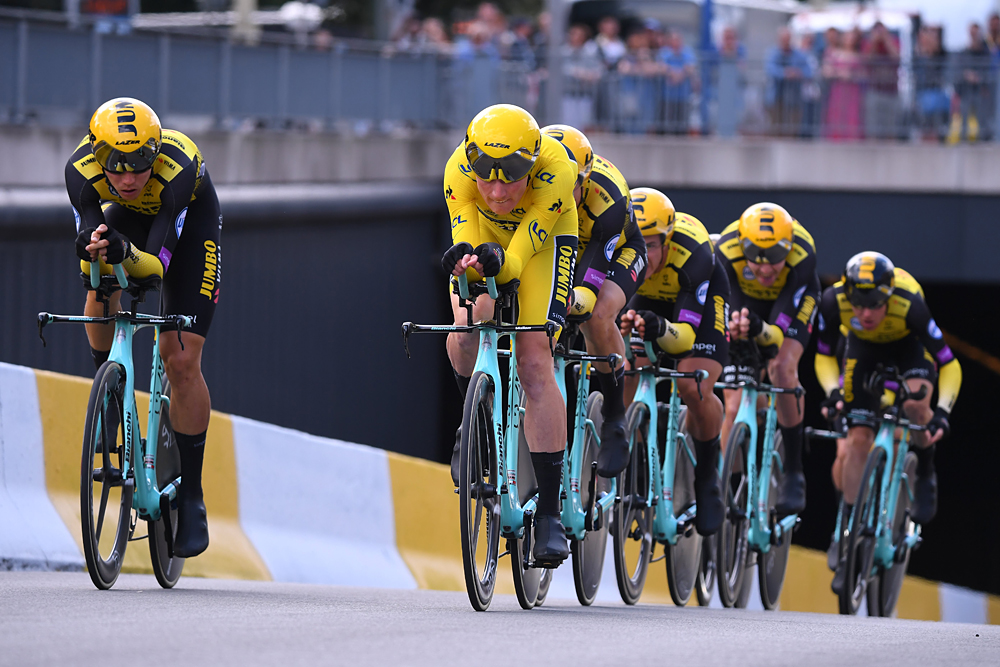
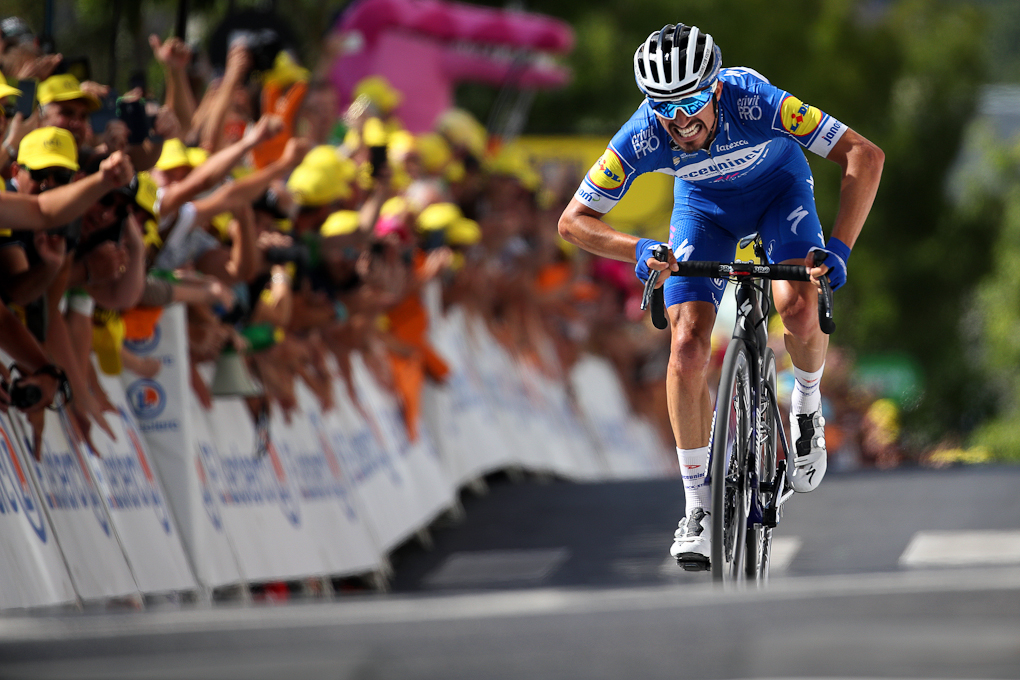
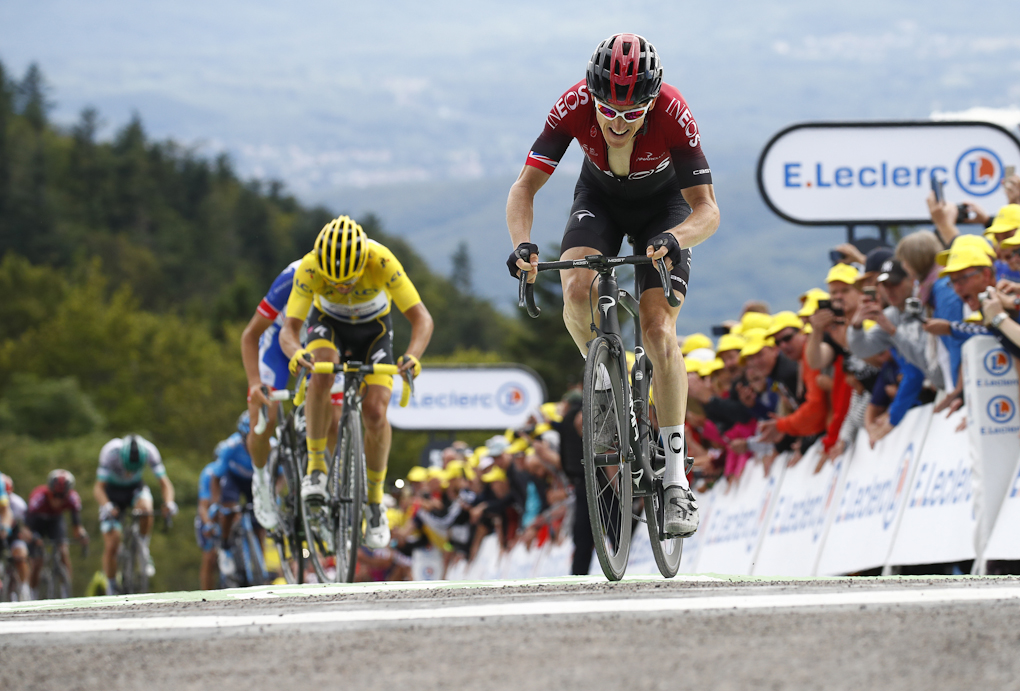
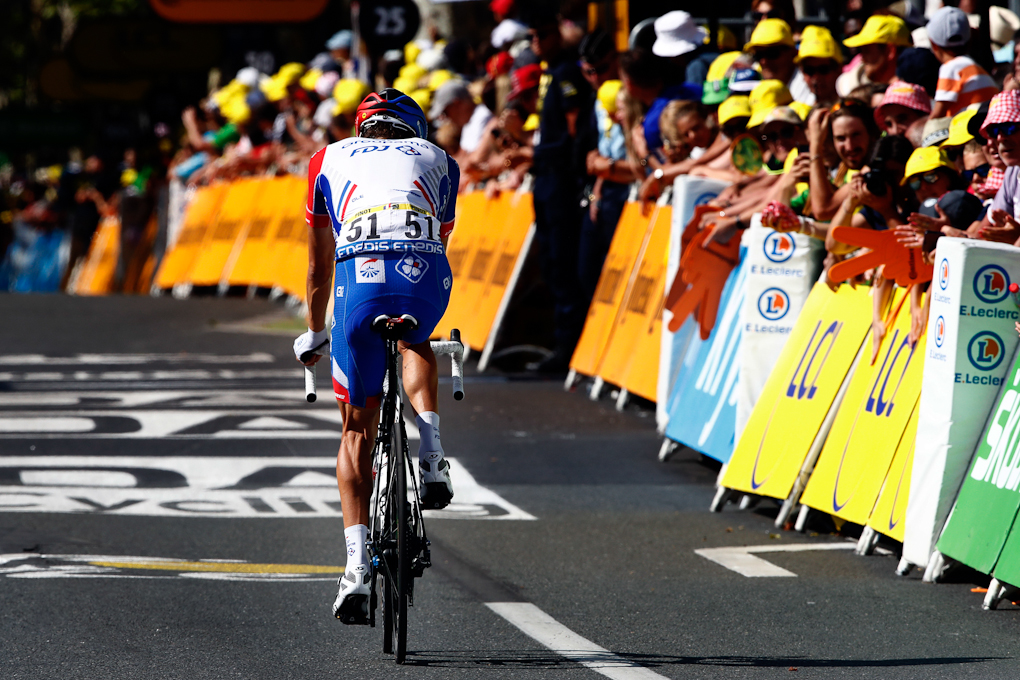
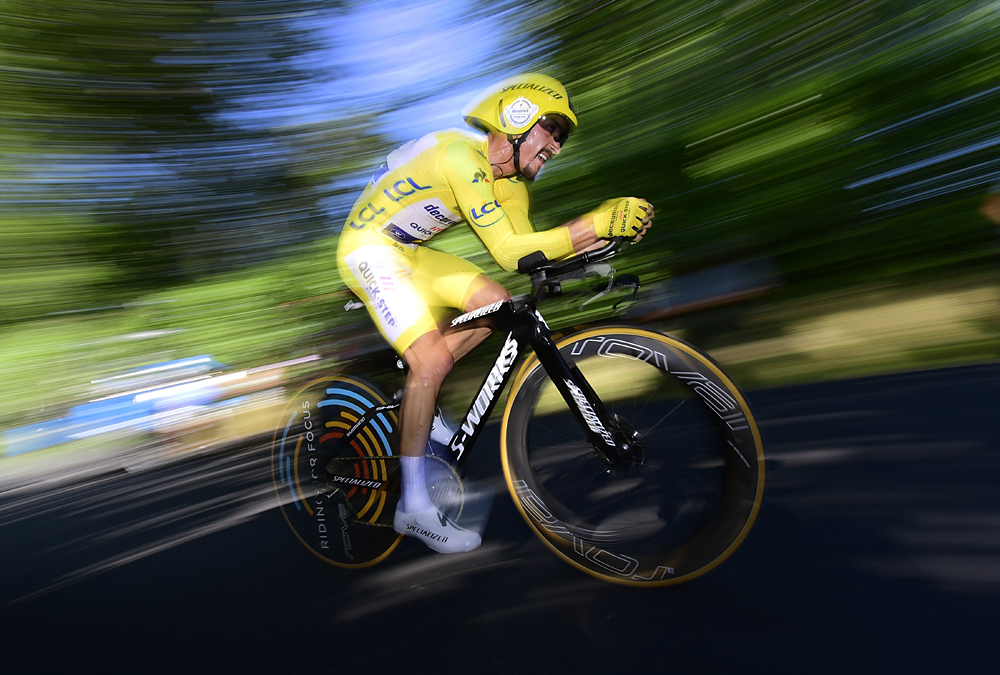
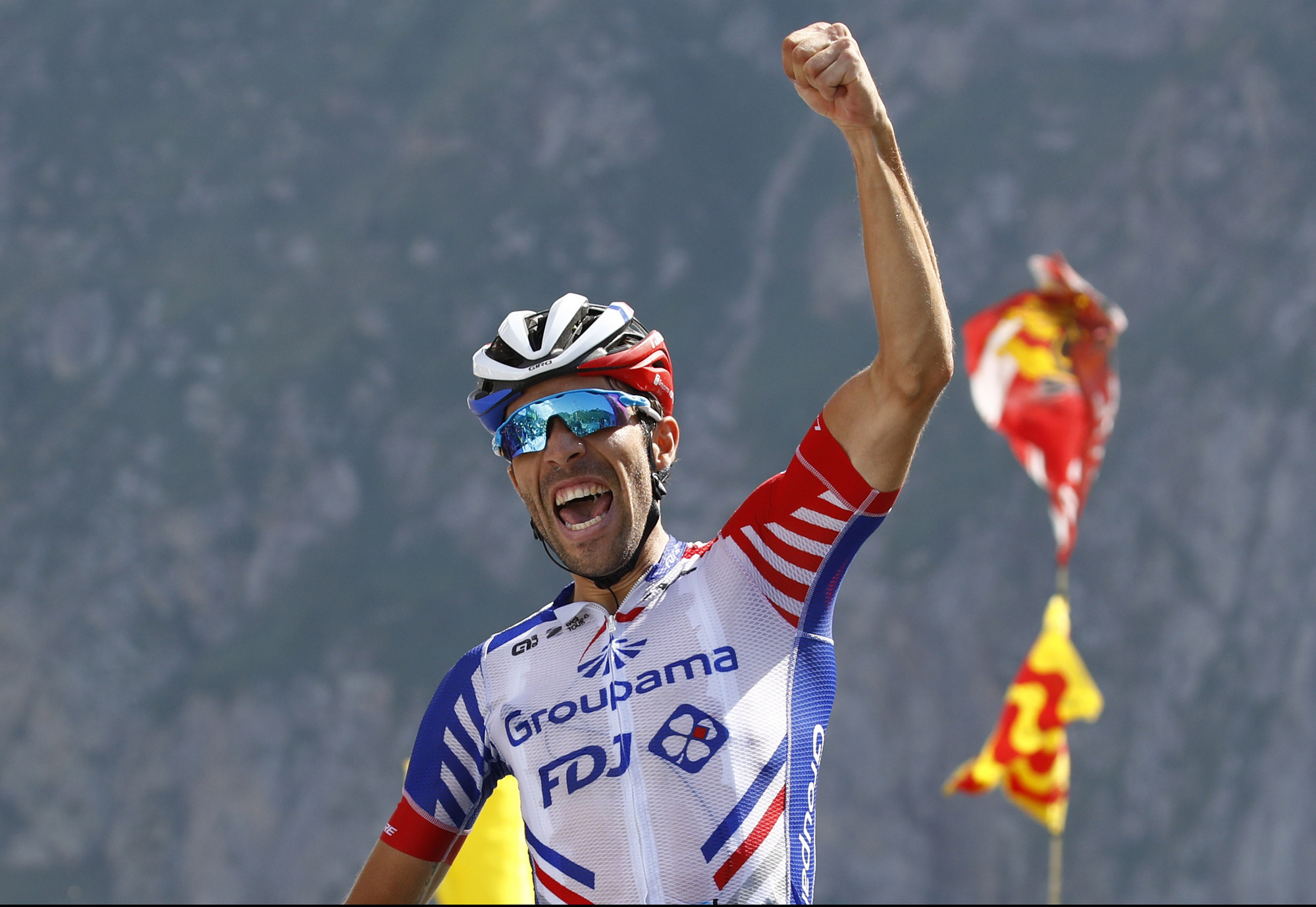
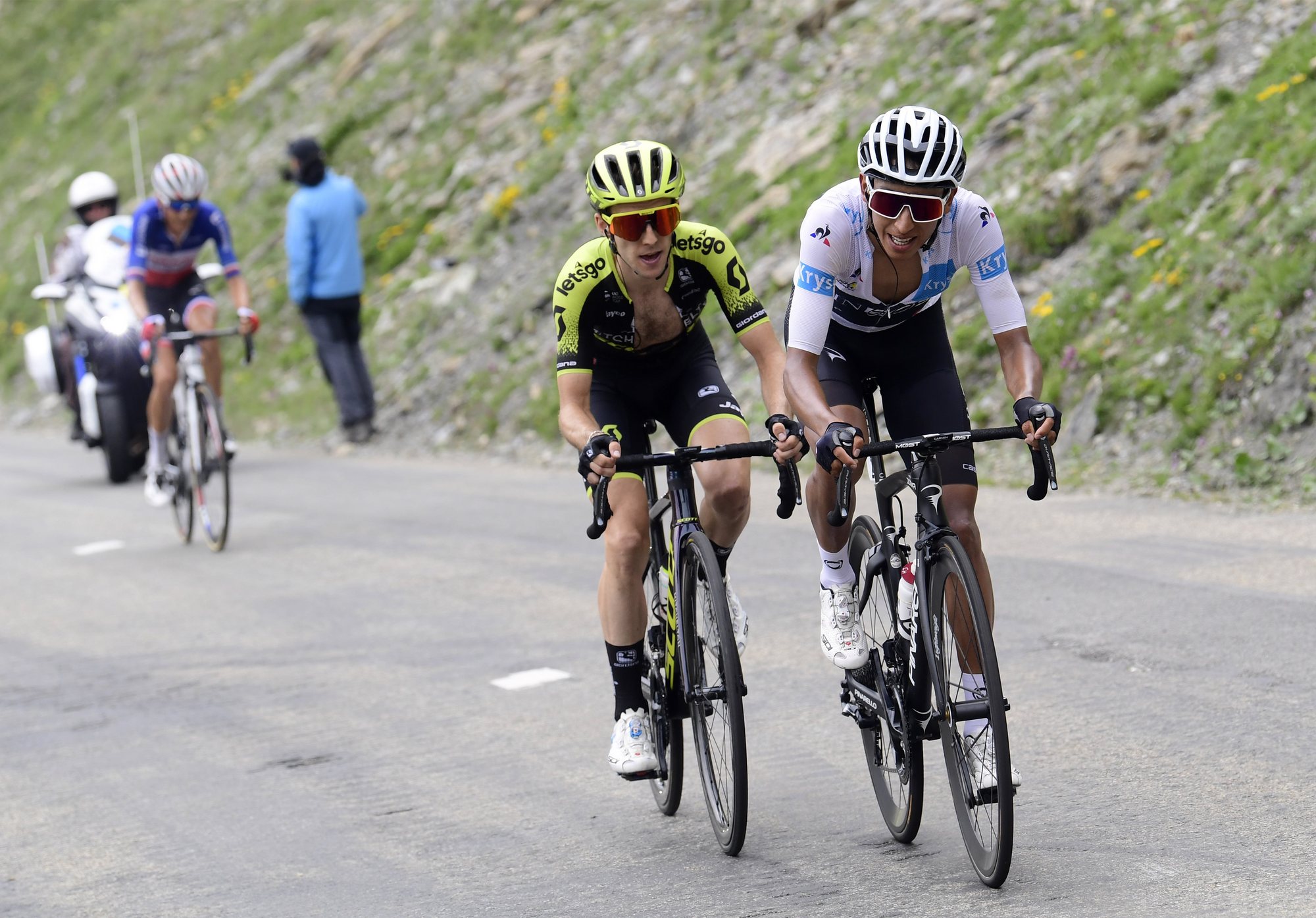
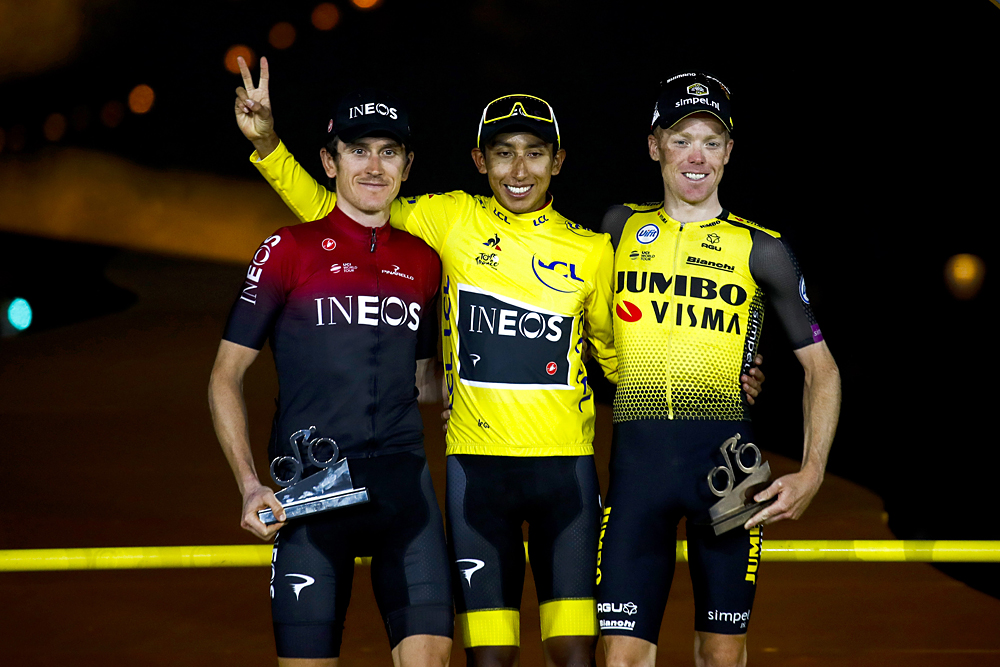
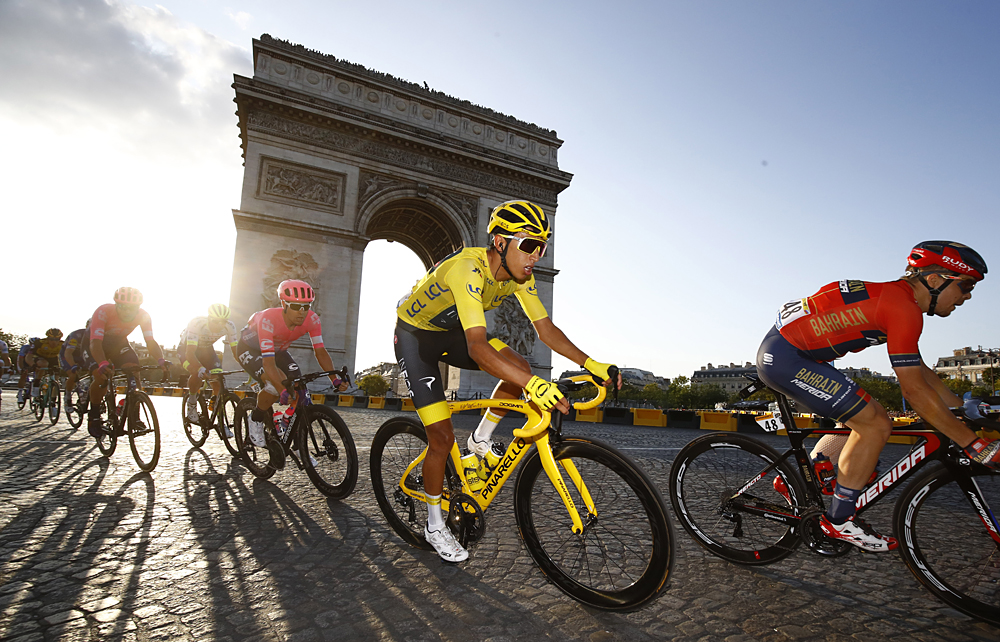
This year's Tour de France was arguably the most thrilling Grande Boucle since Greg LeMond snatched victory from Laurent Fignon by just eight seconds in 1989, with a series of twists and turns creating three weeks of ever changing and entertaining racing.
Geraint Thomas: I believe I can win another Tour de France
Egan Bernal wins 2019 Tour de France
Bernal celebrates emotional Tour de France victory with family on the Champs-Elysees
From Rodriguez to Bernal: Colombia’s long ride to Tour de France success
Bernal rides Belgian criteriums after Tour de France success
In the absence of Chris Froome, and with his Team Ineos squad no longer able to dominate the peloton and steamroll up the climbs, there was often anarchy in the peloton, with Julian Alaphilippe (Deceuninck-QuickStep) and Thibaut Pinot (Groupama-FDJ) leading a French renaissance that captured the hearts of the nation as they dreamed a French rider could finally end their 34-year wait for a home winner.
Mother Nature would eventually step in, with hailstorms and landslides shortening stage 19 to Tignes and stage 20 to Val Thorens, but still allowerd Egan Bernal to use his innate high-altitude climbing ability to conquer the 2,770-metre-high Col de l'Iseran and, in doing so, become the first Colombian to win the Tour de France.
Along the way, Bernal's Ineos teammate – and the defending Tour champion – Geraint Thomas crashed and faltered, but ultimately came good, lending his support to Bernal taking the second step on the final podium, while Jumbo-Visma performed time and again, with Steven Kruijswijk's eventual third place in Paris their crowning glory.
Here are eight flash-points – in stage form – where this year's vintage edition of the Tour de France was made.
Stage 2, Brussels TTT: Jumbo-Visma storm to victory as Porte, Bardet, Landa and Quintana lose a minute
With just 54.8km of time trials on this year's Tour de France route, the 27.6km team time trial around Brussels on stage 2 was always going to create some significant time gaps and indicate who would, and who wouldn't, have a chance of overall victory.
Jumbo-Visma started last after Mike Teunissen had won the opening stage the day before, and the Dutch squad produced another stunning performance to confirm that they would be one of the most dominant and successful teams at this year's race.
The latest race content, interviews, features, reviews and expert buying guides, direct to your inbox!
While Deceuninck-QuickStep, Team Ineos, Team Sunweb, Katusha-Alpecin and EF Education First all finished within eight seconds of each other, Jumbo-Visma were on another level, and won by 20 seconds. In contrast, last year in Cholet, five teams finished within 11 seconds of each other, with BMC taking the spoils by four seconds from Team Sky.
Team Ineos – as Sky are now of course called – have never managed to win the Tour's TTT, but took solace from gaining precious seconds on their overall rivals, and especially Richie Porte (Trek-Segafredo), who lost 1:18, Romain Bardet (AG2R-La Mondiale), who gave up 1:19, and Movistar duo Nairo Quintana and Mikel Landa, who lost 1:05.
Thibaut Pinot and his Groupama-FDJ team kept their losses to their biggest rivals to just 12 seconds, showing they had worked hard on their weakness. It was an inspirational ride that had the Frenchman already believing that 2019 could be his year.
Stage 3, Binche – Epernay: Alaphilippe's champagne supernova attack changes everything
Some innovative race-design by technical director Thierry Gouvenou played a significant factor in this year's race, and especially on stage 3 to Epernay.
The first stage into France included a series of short climbs through the champagne vineyards, and a steep finish in a hilltop suburb rather than on the Avenue de Champagne, lined by the biggest brands in bubbly.
The finale inspired Alaphilippe, and, in doing so, completely changed the Tour. The Frenchman sniffed an opportunity and followed his instincts, in total disregard for cautious Grand Tour racing. He blasted away from the peloton before the Cote de Mutigny to take the eight-second time bonus, and then kept going to win, alone, 26 seconds ahead of the chasers.
With a further 10-second time bonus for winning the stage, Alaphilippe was suddenly in the yellow jersey. He would eventually hold it for 14 days, capturing the hearts of the nation and gaining admiration from around the world for his panache.
Without Alaphilippe's all-out attack, the 2019 Tour de France would have followed a very different, and no doubt far less entertaining, narrative.
Stage 6, Mulhouse – La Planche des Belles Filles: Thomas fights back
Expectations were high for the first uphill finish at La Planche des Belles Filles on stage 6 – especially due to the addition of a dirt-road sector and a section reaching 24 per cent in the final kick-up to the finish line. The steep climb is close to Pinot's home, and so he'd likely want to show himself, while surely Alaphilippe would attack to try to gain more time. In fact, the overall contenders would all have to show themselves, rather than hiding in the peloton and letting the sprinters and baroudeurs hog the spotlight.
Bernal had caused a stir by gaining five seconds on Thomas on stage 3 to Epernay, when the Welshman seemed to struggle on the steep finish. Were his Tour de Suisse crash injuries more serious than Team Ineos had admitted? Was Bernal trying to become the team's sole leader?
Thomas responded with a show of power on the final steep ramp up to the finish line. He let Alaphilippe go early, and then charged away himself, passing the yellow jersey before the line to take back nine seconds on Bernal and show who was, at least for now, top dog at Team Ineos.
Thomas' show of pride also helped cover the cracks at Team Ineos. Wout Poels, Jonathan Castroviejo and Gianni Moscon had all been distanced on the penultimate climb of the Col des Chevreres, with Michal Kwiatkowski of little help in the final kilometres. Team Ineos did not seem able to steamroll the peloton on the climbs in the same way Team Sky so often had in the past. Something had changed in the balance of power, and it only helped make for a more thrilling race later in the mountains.
Stage 10, Saint-Flour – Albi: Pinot rages after losing time in the echelons
The ride through the fields of sunflowers of the Cantal and Tarn prefectures was supposed to be a transfer day to the first rest day, but there are rarely easy days in modern Grand Tours anymore.
The riders sensed something was going to happen at the start, where the wind was already strong. The split eventually came with around 35km to go after an earlier attempt by EF Education First proved premature. Team Ineos and Deceuninck-QuickStep hit the front hard, like it was the finale of spring Classic Gent-Wevelgem, forcing a select echelon and spitting out many of their overall rivals.
Most teams have a recon vehicle ahead of the race to study every kilometre of each stage, but Groupama-FDJ were caught napping – as were Porte, Jakob Fuglsang (Astana) and Rigoberto Uran (EF Education First). They chased until their strongest teammates blew up, losing 1:40.
It was also a bad day for Landa, who was pushed off the road by a ripple in the front group. He ended up in the ditch and lost 2:09.
"C'était une journée de merde!" Pinot raged, but promised to fight back in the Pyrenees.
Stage 13, Pau individual TT: Alaphilippe wins in yellow on the 100th anniversary of the maillot jaune
Stage 13 coincided exactly 100 years to the day Eugene Christophe had worn the Tour de France's first-ever leader's yellow jersey. And, this year, it was another Frenchman – that man Alaphilippe again – who powered through the 27.2km individual time trial around Pau to not only defend his maillot jaune, but to win the stage and gain time at the top of the general classification.
Cue further Alaphilippe-mania – although at this point of the race, no one had the slightest inkling just how long the 27-year-old would still stay in yellow. The LouLou hysteria was still a side-show; Pinot, however, kept the French GC dreams alive with a decent ride that saw him lose just 35 seconds to defending Tour champ Geraint Thomas, who in turn proved himself to be the strongest of the GC contenders.
Thomas not beating Alaphilippe, however, was the real surprise, indicating that the Welshman was perhaps not at the same high level of a year previously. Bernal, meanwhile, dropped a massive 1:22 to his team leader, and it was pretty much the final nail in the coffin for Bardet's overall hopes, before a serious mountain had even been climbed, with the AG2R La Mondiale leader losing well over two minutes to Thomas.
Stage 14, Tarbes – Col du Tourmalet: Pinot fights back into overall contention
This was the day on which France truly began to believe, with Pinot winning the stage to the top of the Col du Tourmalet in imperious fashion, and Alaphilippe – almost as imperiously – coming home just six seconds down in second place, ahead of Kruijswijk.
And the rest of the world? Bernal, alongside another GC revelation, Bora-Hansgrohe's Emanuel Buchmann, came in just a few seconds down, while Thomas lost 30 seconds, and Astana leader Jakob Fuglsang shipped nearly a minute.
Pinot appeared to quash any previous doubts or worries that he'd had in the past, and dismissed the burden of any pressure he'd ever experienced, to put his rivals to the sword in the final 500 metres, having already distanced Fuglsang with 1.5km to go, and then Thomas as the front group went under the kilometre-to-go banner.
Pinot's Groupama-FDJ teammates – and in particular 22-year-old David Gaudu on the final climb – had ridden like a Tour winner's team, banishing the disappointment of stage 10 to history. He may have only gained a handful of seconds on Kruijswijk and Bernal, but Pinot was starting to look like a real Tour winner.
And then there was – tenaciously, amazingly – Alaphilippe, still in yellow, doggedly holding on to the race lead, despite the race having reached the high mountains, and gaining more time on everyone but Pinot and Kruijswijk.
The Tour had been turned almost on its head, setting up a thrilling final week in the Alps.
Stage 19, Saint-Jean-de-Maurienne – Tignes: Bernal storms into the yellow jersey
France still believed that one of their riders could win the Tour at the start of stage 19 – even if many quietly admitted that Alaphilippe's reign in yellow was perhaps soon to be over, after cracks emerged on the previous day's stage to Valloire and Bernal gained 32 seconds.
The Frenchman went into the stage with a 1:30 lead over Bernal, with Thomas another five seconds back. Kruijswijk was fourth, and Pinot – France's more realistic hope of overall victory – was fifth, 1:50 down on his compatriot. It was all still very close.
Then, just 30km into the stage, it was suddenly all over for Pinot. A muscle injury in his thigh had become too much to bear. Pinot's race was over. He and much of France was in tears.
On the Col de l'Iseran, Thomas attacked and immediately put Alaphilippe into trouble. Then it was Bernal's turn – and it was here that the race was won. Bernal crested the Iseran with a minute's advantage over a group containing Kruijswijk and Thomas, while Alaphilippe was another minute back, and virtually out of yellow.
By now, Bernal had only Mitchelton-Scott's Simon Yates for company – with the British climber seeking his third stage win at this year's race – but pulling alongside the pair on the descent came race director Christian Prudhomme, waving his arms from his red car: the stage was to be shortened due to landslides and hailstorm's blocking the race route further down in the valley. There would be no stage winner, and the day's times would be taken at the top of the Iseran. Bernal was the new yellow jersey.
There was general disbelief. Had this special Tour been ruined by a force of nature? Despite the following day's stage also being shortened, the short answer was, luckily, "no". Bernal had already by then proved himself to be the race's best rider – and no one could be in more disbelief than the Colombian when he got to pull on his first yellow jersey as the leader and, ultimately, the winner of the race.
Stage 21, Rambouillet – Paris: The start of the Bernal era as Ewan wins again
Stage 21 was not a turning point of this year's race but it was the day that crowned 22-year-old Egan Bernal as the youngest-ever winner of the yellow jersey and as the first Colombian Tour de France winner.
As is usually the case on the final run to Paris, Bernal's yellow jersey was safe on the Colombian's slight shoulders, as was his white jersey as the race's best young rider, as Team Ineos enjoyed some champagne and savoured yet another overall victory. Romain Bardet won the polka-dot jersey and Peter Sagan took a record-breaking seventh green-jersey.
Still up for grabs was the stage victory on the famous Champs-Elysees – the so-called 'sprinters' world championship' – and it was Australia's Caleb Ewan (Lotto Soudal) who delivered, taking his third stage victory in what was the 25-year-old's first Tour de France.
With Bernal's overall victory in the bag, we can already talk about what might now be a new era of South American dominance at Grand Tours, with a plethora of young climbing talent from the continent queuing up to demonstrate their considerable talent in the mountains.
Ecuador's Richard Carapaz has already won this year's Giro d'Italia (and already appears to have been signed-up for next season by Team Ineos), while the Tour victory for Bernal – only the third non-European, after LeMond and Australia's Cadel Evans – simply confirmed what many thought was inevitable, if not this year, then in the near future.
Can South America make it a clean-sweep at the upcoming Vuelta a Espana? The face of not only Colombian cycling but professional cycling as a whole – and Europe's habitual dominance of it – has been changed by one of the most exciting Tours in years.
